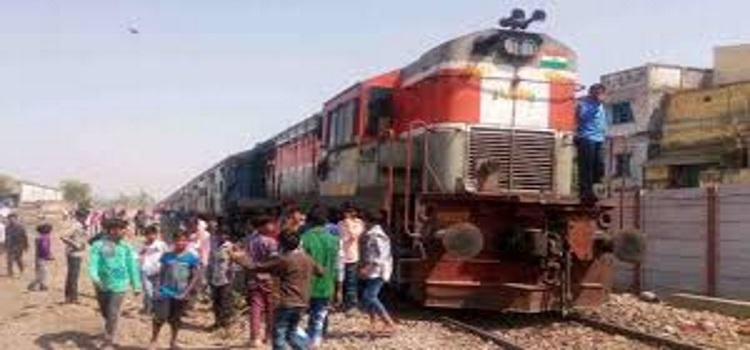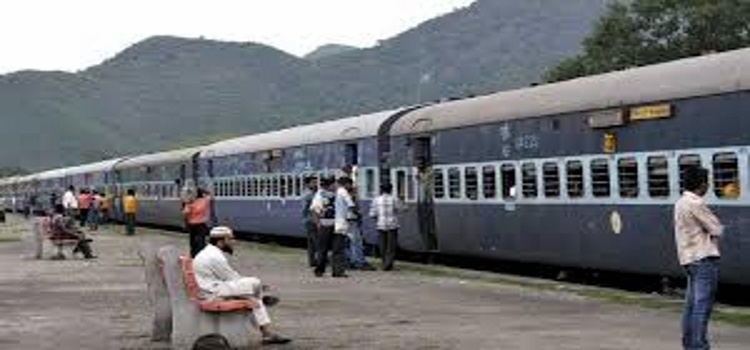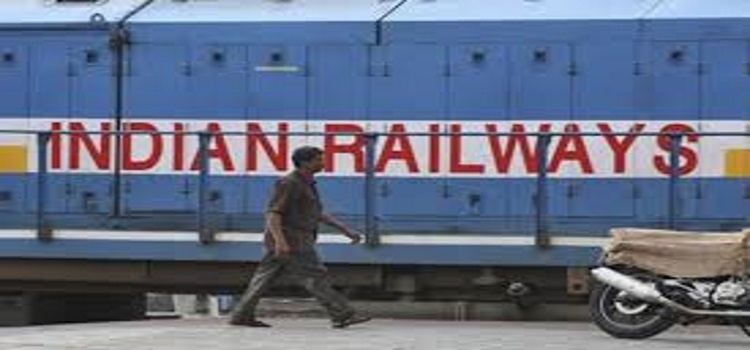South Central Railway, one of the foremost Zones in terms of punctuality performance on Indian Railways, has seen an upswing on this front in the last four years. The Zone which handles around 755 passenger carrying trains and 650 freight trains on an average each day, is critical to rail operations for Indian Railways, since SCRs network is the virtual gateway to the South of India from all other directions. Between 2014-17, the punctuality of mail/express trains was around 96%. In 2017-18, on account of priority accorded to safety of rail services and enhancing rail infra capacity, track maintenance and new infrastructure works were taken up on the Zone. This resulted in a temporary lessening of punctuality to around 92% during the year, which is now again showing a gradual increase to reach the optimal best.
Shri Vinod Kumar Yadav, General Manager, South Central Railway has initiated a stringent monitoring mechanism to keep track of the train movements on the entire network, on a 24 x 7 basis. Besides lending special focus to punctual movement of identified important trains monitored at the level of Railway Ministry, the General Manager himself has taken the onus to monitor several other identified important trains at his level. Instructions have gone from the General Manager to Senior Officials of the Zone to intensively keep track of all trains on run at various levels so as to ensure punctuality and identify any cause which affects the same for immediate remedial action.
With Safety on Indian Railways coming to the fore, Shri Piyush Goyal, Hon’ble Minister of Railways has held the view that maintenance of tracks should be accorded top priority and works completed on a war footing. In addition, a huge thrust is being accorded by the rail ministry for undertaking construction of new railway lines, doubling/tripling of railway lines, electrification of the network and improvement to the rail infrastructure, so as to cater to the demands of the ever increasing rail traffic.
Keeping these factors in view, Shri Vinod Kumar Yadav, General Manager, SCR drew up a concerted plan of action to undertake maintenance of Railway track on SCR’s network in a time bound manner, besides speeding up the works for new rail lines, doubling/tripling of rail lines, electrification of rail sections and other infra. The most vital factor for completing these developmental and upgradation works in a targeted time is the need to temporarily regulate train services for a few hours in identified sections to undertake the work, which slightly impacts the punctuality of train services. With a view to ensure that these temporary blockage of train movement for a short duration is efficiently utilized to complete the maintenance and other works and minimize inconvenience to rail passengers on account of slight delay in train services, the General Manager has drawn up a schedule for regular review meetings with the Principal Heads of Departments and Divisional Railway Managers on the Zone.
During the last fiscal 2017-18, 71 route kms of track length has been undertaken for maintenance each day on SCR due to which select sections were blocked for train services for a fixed duration of hours intimated to the public well in advance, so as to expeditiously complete the maintenance work. A total of 127 blocks were undertaken each day, cumulatively for 1,23,178 hours during the year, for the purpose of completing these developmental and upgradation works. This led to a slight delay in the punctuality of train services in some sections on account of short duration regulation enroute. Steps were taken to ensure that long distance trains are regulated for the least possible time so that they make up the delay enroute and reach the destination on time. In case of need, short distance services were notified for cancelation in the sections whenever the temporary stoppage is imposed, so as to enable the local rail users to opt for other modes of transport without any inconvenience during the period.
In the larger context, these maintenance, developmental and upgradation works have served the purpose of substantially enhancing safety standards all over SCR’s network to the optimal level of “Zero accident record” last year. The enhanced fitness of the rail routes which underwent maintenance also significantly enabled increase the speed of train services on account of removal of permanent speed restrictions and reduction of temporary speed restrictions, there by ultimately contributing to improved levels of punctuality in train services. To sustain this positive gain, the Operating department of the Zone is continuously undertaking punctuality drives, to identify and clear any visible short coming or bottle neck on this front.
SCR has also adopted various other measures to enhance the punctuality levels of train services during the year. With a view to serve the demands of rail users, 04 pairs of Express and 02 pairs of passenger trains have been extended to various destinations, which also contributed to decongest the existing destination stations, thereby improving punctuality of the train services. Yet another positive gain on account of the priority accorded to completion of track maintenance, is the speeding of 14 trains by more than 30 minutes within the Zone, during 2017-18. Running of Special Trains also reached the peak on SCR during the year, with around 260 Special Trains being run each month on an average, an outcome of the completion of maintenance of tracks which enhanced the scope to plan for these additional train services. In case of short distance services, the technologically efficient Diesel Electrical Multiple Unit (DEMU) rakes were introduced in place of the conventional rakes for 13 passenger trains, thereby signifying more efficient and speedier run of these trains.
The General Manager has set a goal for the Zone to further streamline the developmental and upgradation works by enhancing efficiency and reducing the time taken, so that the punctuality performance of SCR attains the maximum high in the ensuing months of the current fiscal.




